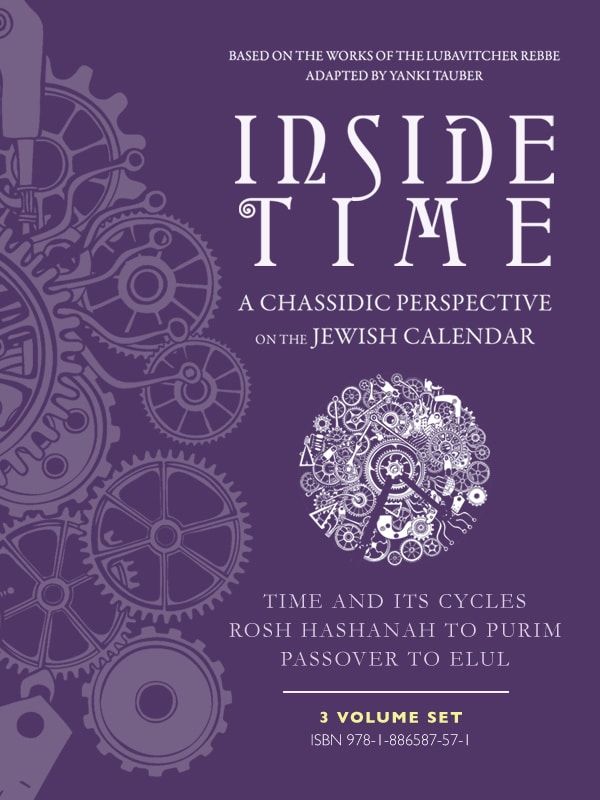If I am not for myself, who is for me?
And if I am only for myself, what am I?Ethics of the Fathers, 1:14
The Talmud relates that the Ark in the Beit Hamikdash (Holy Temple) in Jerusalem, which held the Two Tablets inscribed with the Ten Commandments, possessed most unusual physical qualities. The Torah specifies the Ark’s dimensions: “Two cubits and a half should be its length, a cubit and a half its breadth, and a cubit and a half its height.”[1] Nevertheless, says the Talmud, the Ark did not occupy any of the space of the chamber that housed it. Miraculously, “The area of the Ark was not part of the measurement.”[2]
What was the point of this amazing miracle? Man, in his quest to better himself, is forever faced with a dilemma. Should he strive to break free of his nature and its limitations? Or, is it preferable to work within the parameters of his natural self, to make the most of what he is?
Each goal has its advantages and shortcomings. It would seem that to attain perfection man must reach beyond what he is, as every individual has his inherent limits and deficiencies. Yet lofty, spiritual “experiences” often remain outside of a person’s reality, failing to translate into anything tangible in his daily life.
The Ark’s “physics” teach us that the two goals are not mutually exclusive. The Ark transcended the spatial, yet retained all of its qualities. In the same way, no matter how high a person reaches, his attainments always can, and must, be made part of his pedestrian, human self.
A life lived according to Torah (which the Ark, container of the Ten Commandments, represents) enables man to reach beyond the confines and dictates of his physical environment and society. At the same time, it insists that he make this greater reality his reality — that it become an integral part of his own nature, character and everyday behavior.
.. And Time
If not now, when?
Ethics of the Fathers, 1:14
Our world is a banquet,” proclaims the Talmud. “Grab and eat, grab and drink.”[3]
Those who arrived during the early hours of the banquet went about their feasting and dining in a most professional and methodical manner. First, they sampled the appetizers—just enough, mind you, to properly whet their appetites. They then proceeded up the ladder of courses and wines, carefully negotiating their way to gastronomic satisfaction par excellence.
But what of the group who arrived a few scant minutes before midnight, the hour when the tables were to be cleared, the chairs stacked and the doors bolted shut? For them to attempt to follow the course outlined by the intricate rules of dinner etiquette would only guarantee that the doors would slam on their empty stomachs. “Just grab!” we tell them. Grab meat, salads, soup, wine and fish—never mind the order and proportion. It’s a race against the clock: Grab and eat, grab and drink….
In earlier generations, there was a well-defined “Standard Operating Procedure” for those who consulted the Torah’s spiritual menu for the banquet of life. No one, for example, would have ventured to sample the esoteric wine of creation’s secrets before filling his belly with the “meat and potatoes” of Talmud and halacha.[4] No one would have been so presumptuous as to believe that he could refine his nature and character before he had perfected his behavior and made his every act, word and thought utterly conform to Torah’s directives.
All this, however, was a luxury of generations bygone. Today, we are rapidly approaching the climax of history — the day when Moshiach will herald a new era of goodness and perfection, yet will also bring down the curtain on the struggles and attainments that stem from our currently imperfect state. So grab! Grab another mitzvah, master another, yet deeper, facet of Torah. Never mind the “Standard Operating Procedure”—strive for the ultimate, now.
This is an excerpt from “Beyond the Letter of the Law” by Yanki Tauber published by The Meaningful Life Center.
[1] Exodus 25:10. A cubit is approximately 20 inches
[2] Talmud, Yuma, 21a.
[3] Talmud, Eruvin 54a
[4] Jewish Law.







I think Ethics of the Fathers 1:14 would make an excellent slogan. I think it deserves adoption as a personal mission statement. Thank you for room to comment…Obey 1